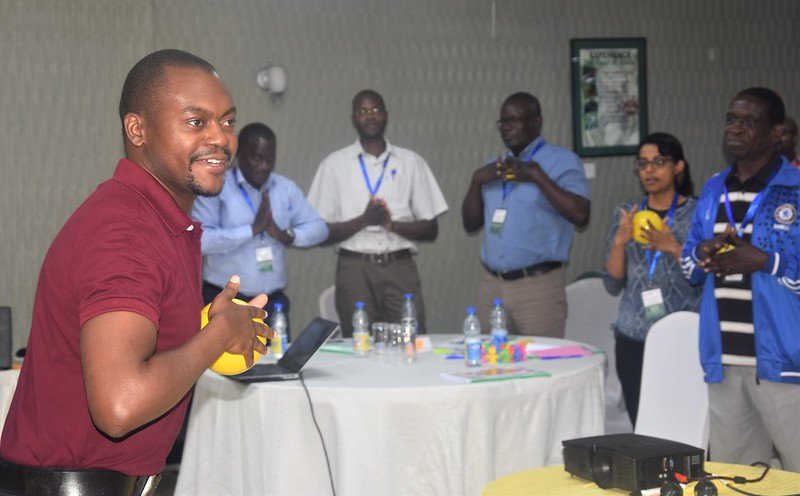Ugandan constructors in the Small, Medium Enterprises (SME) segment are part of the group that will benefit from the GIZ’s Employment and Skills for Development in Africa (E4D) Programme aimed at equipping the SMEs with the knowledge, skills and tools necessary to enhance their contribution to employment creation, but also for survival, recovery and continuity in light of the economic effects of the COVID-19 pandemic.
The E4D Programme training for constructors was commissioned by the German Federal Ministry for Economic Cooperation and Development (BMZ) and is co-funded by the European Union, Norwegian Agency for Development Cooperation (Norad), the UK’s Foreign Commonwealth and Development Office (FCDO), Korean International Cooperation Agency (KOICA) and private sector companies – Quoniam Asset Management, Rio Tinto, Royal Dutch Shell, Sasol and Tullow Oil plc.
The 8-year Programme (2015-23) is being implemented with different partners in South Africa, Tanzania, Mozambique, Ghana, Kenya and Uganda.
The Infrastructure Magazine understands that in Uganda, the initiative is being implemented in partnership with Absa Bank Uganda, Uganda Tourism Association (UTA), Uganda National Association of Building and Civil Engineering Contractors (UNABCEC), Federation of Small and Medium-sized Enterprises in Uganda (FMSE) and Uganda Manufacturers’ Association (UMA) – targeting some of the sectors with high potential to create employment.
The Uganda segment is being delivered by leadership and consulting firm, Aclaim Africa, which was contracted by GIZ to conduct a free 6-month Online SME Business Survival & Continuity Training & Coaching, starting January 2021. Participating SMEs will be equipped with business strategies and tools to support them in coping with the economic effects of the COVID-19 pandemic and enhance their business survival, recovery and continuity.
Participating companies can also apply for a professional 3-month, one-on-one, coaching phase that will follow the online training. Selected companies will also qualify for small grants from E4D and financing from ABSA at reduced interest rates.
To be eligible, an SME must be in the manufacturing, construction, tourism and hospitality sectors; it must have an annual sales revenue of between UGX 100m to UGX 1bn; have been operating for at least 1 (one) year; employ at least 5 Staff; and have access to internet and at least a smartphone to participate in this training
The training programme delivered by Aclaim Africa Limited, will entail modules in, building financial management systems, financing businesses, managing costs effectively, business planning and management, acquiring and retaining customers, running business online, leading and management of people, and managing risk in business.
Additionally, selected companies will qualify for small grants from the Employment and Skills for Development in Africa (E4D) programme and financing from Absa Bank Uganda at reduced interest rates.
Speaking at the launch of the sessions recently, Albert Byaruhanga, Absa Bank Uganda’s Head of Business Banking, said, “SMEs in Uganda have been disproportionately affected by the COVID-19 pandemic and as such recorded a larger decline in business activity compared to large firms. As a financial institution that is invested in the growth of SMEs, Absa Bank Uganda is proud to work with GIZ, an experienced and reputable partner, to bring forward pragmatic resilience-based solutions to the challenges facing these businesses, which are at the core of the country’s economy.”
James Macbeth Forbes, GIZ country director said,” There is no question that the private sector is critical to the economic development of Uganda, and a large component of this growth will be driven by having a highly skilled and highly competent SME core. To achieve this, we rely on public-private partnerships with institutions such as Absa Bank Uganda, who bring to the table the zeal and experience that is key to sustainable SME growth.”
Byaruhanga said “The COVID-19 pandemic has highlighted the need for all the relevant stakeholders to go beyond the call of duty and provide additional value for stakeholders. Absa Bank Uganda is committed to the growth and development of the SME sector, and this is one of the ways through which we are making a mark for our customers and SMEs in Uganda.”
The Infrastructure Magazine: Insight. Context. Depth. Perspective for recovery post-Covid-19.













